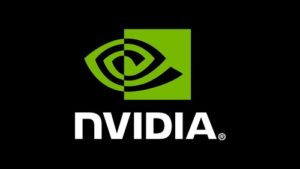 Already facing worldwide regulatory challenges and delays, the planned acquisition by Nvidia of Arm Ltd. may have finally run into a roadblock too high. The U.S. Federal Trade Commission announced today it is suing to block the planned $40 billion acquisition, charging that the “vertical deal between chip supplier Nvidia and chip design provider Arm would allow (the) combined firm to stifle competing next-generation technologies.”
Already facing worldwide regulatory challenges and delays, the planned acquisition by Nvidia of Arm Ltd. may have finally run into a roadblock too high. The U.S. Federal Trade Commission announced today it is suing to block the planned $40 billion acquisition, charging that the “vertical deal between chip supplier Nvidia and chip design provider Arm would allow (the) combined firm to stifle competing next-generation technologies.”
In its announcement, the FTC said the proposed deal “would give one of the largest chip companies control over the computing technology and designs that rival firms rely on to develop their own competing chips. The FTC’s complaint alleges that the combined firm would have the means and incentive to stifle innovative next-generation technologies, including those used to run datacenters and driver-assistance systems in cars.”
Nonetheless, Nvidia issued a statement indicating it will press on with the planned deal. “As we move into this next step in the FTC process, we will continue to work to demonstrate that this transaction will benefit the industry and promote competition,” the company said.
The complaint names Nvidia Corp., Arm Ltd., and Arm owner Softbank Group Corp., Tokyo. The commission voted 4-0 to issue the administrative complaint, and the administrative trial is scheduled to begin on Aug. 9, 2022. Nvidia announced the deal in September 2020 and said at the time it expected regulatory review to be completed within approximately 18 months. But the planned acquisition has been dogged all year by regulatory hurdles in Asia, the UK, Europe and the U.S.
In its strongly worded statement, the FTC termed Nvidia’s attempted acquisition to be “illegal.”
“The FTC is suing to block the largest semiconductor chip merger in history to prevent a chip conglomerate from stifling the innovation pipeline for next-generation technologies,” said FTC Bureau of Competition Director Holly Vedova in the FTC’s aggressively worded statement.. “Tomorrow’s technologies depend on preserving today’s competitive, cutting-edge chip markets. This proposed deal would distort Arm’s incentives in chip markets and allow the combined firm to unfairly undermine Nvidia’s rivals. The FTC’s lawsuit should send a strong signal that we will act aggressively to protect our critical infrastructure markets from illegal vertical mergers that have far-reaching and damaging effects on future innovations.”
Nvidia would no doubt counter that it has a long history of fostering, not stifling, innovation. However, the juggernaut growth of the company’s revenues and profits (up 50 percent and 85 percent, respectively, last quarter) and stock price (up nearly 150 percent this year) likely did little to reduce FTC concerns about the company’s potential power, with Arm in its fold, to control expanding portions of the semiconductor industry, increasingly viewed by countries and regions as critical to their economic and military competitiveness.
Arm does not supply or market finished chips, it creates and licenses microprocessor designs and architectures – including, for that matter, Nvidia and its “Grace” Arm-based server CPU. These companies use Arm technology to make computer chips that power a wide range of devices and systems, including the world’s no. 1-ranked supercomputer, “Fugaku,” housed at the Riken Center for Computational Science in Japan. Arm licenses its technology using an open licensing approach and is often called the “Switzerland” of the semiconductor industry.




